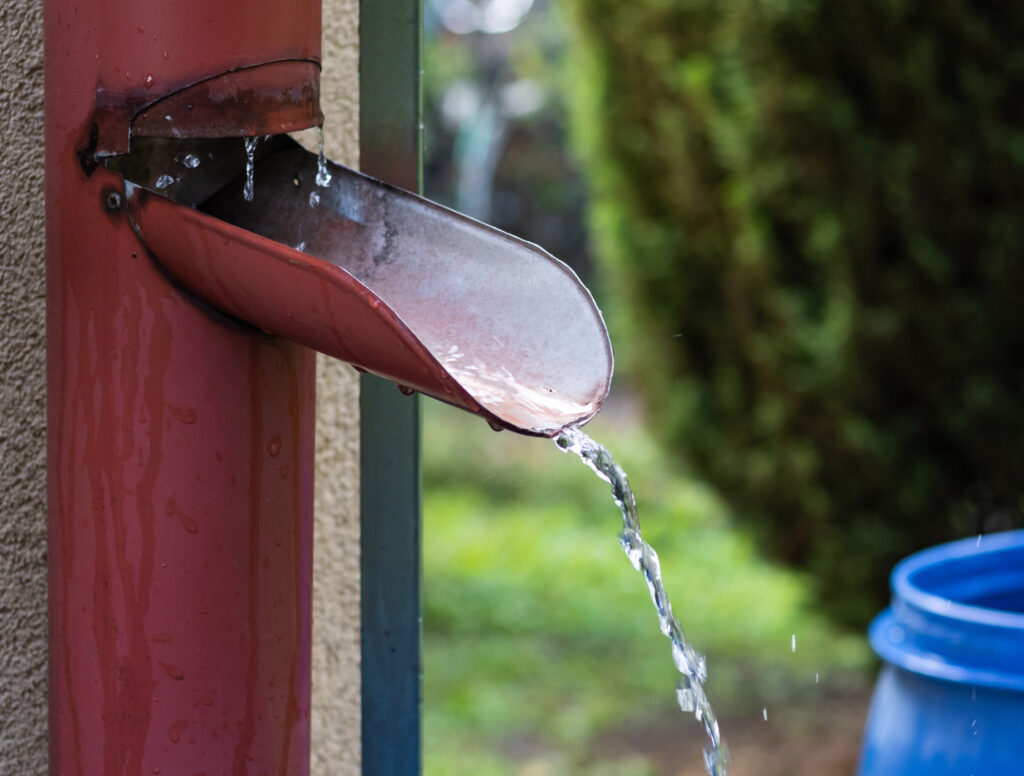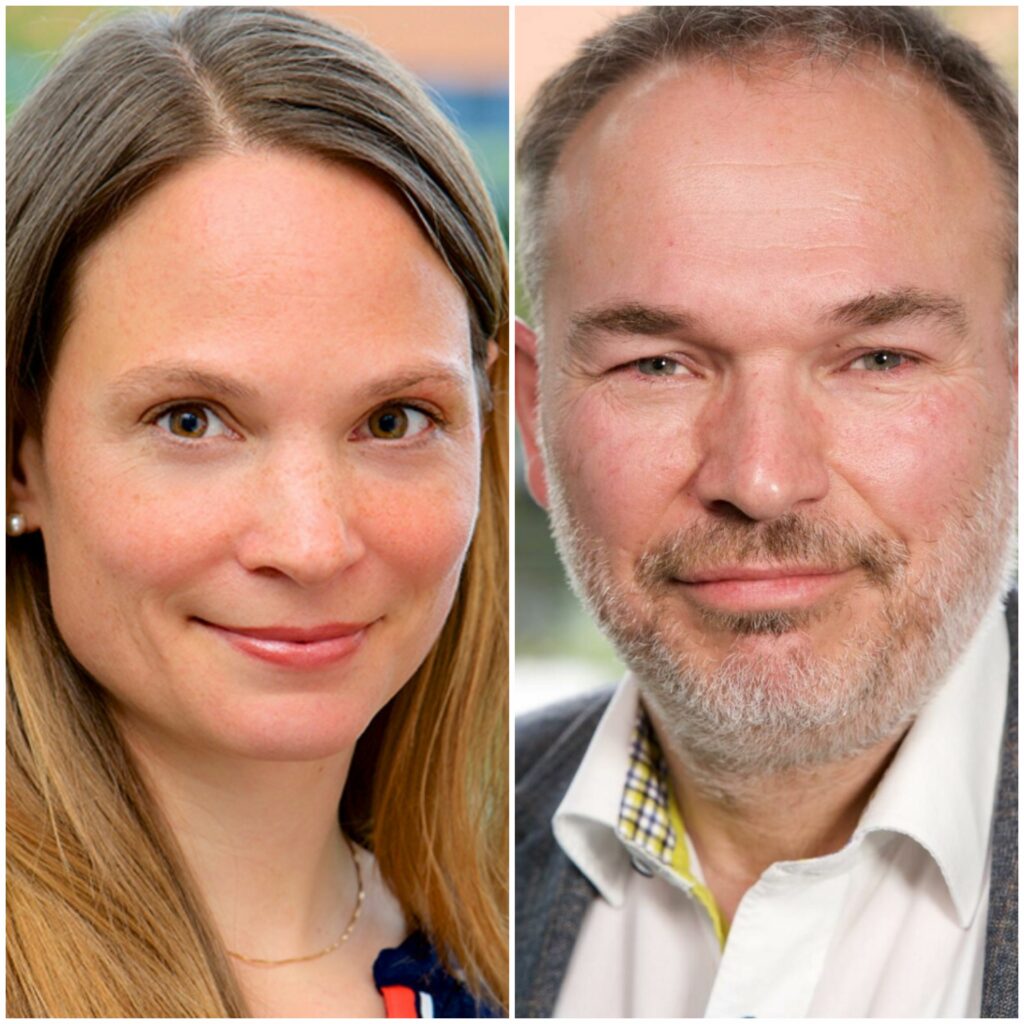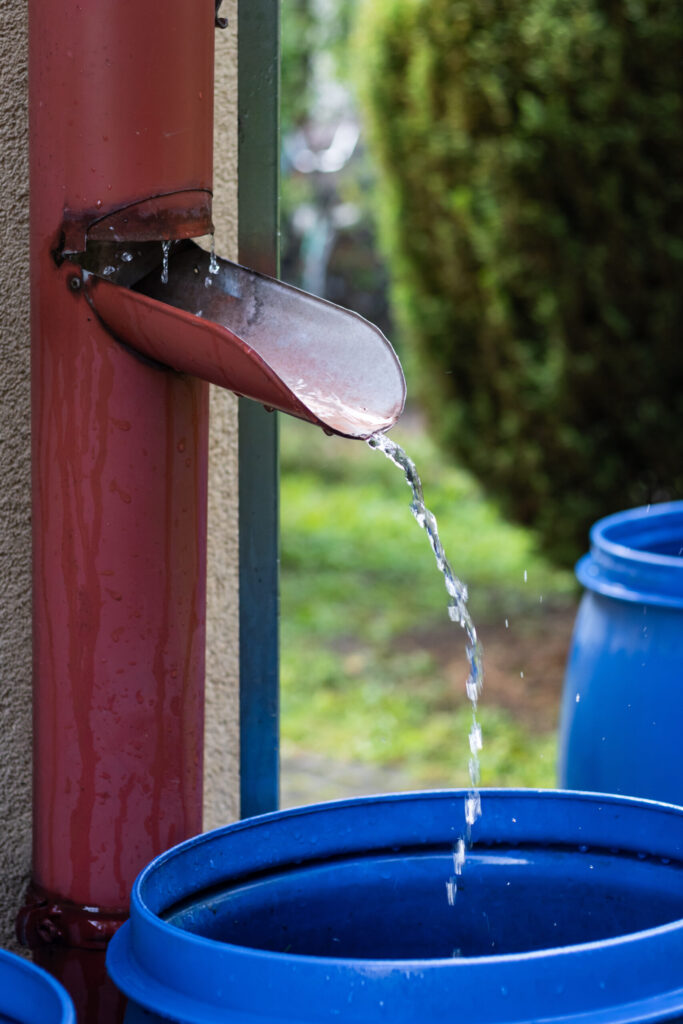Recently, the student project "Communication concept for rainwater management Gebsattel (KoReGeb)", which was carried out as part of the ERNie research project ("Investigation of the use of rain barrels for rainwater retention in a residential area to relieve the sewer during heavy rainfall") and on behalf of the company Härtfelder Ingenieurtechnologien GmbH from Bad Windsheim.

Climate change-related flooding overloads the sewerage system
Heavy rainfall events and flooding have been on the rise in recent years. Particularly in urban areas with a high level of surface sealing, the sewerage system can quickly become overloaded, as large parts of the rainwater run off and flow into the sewerage system.
Due to further settlement in existing structures, an adapted dimensioning of the sewage system is also associated with very high costs - because the existing sewage system must be structurally expanded or renewed according to demand."
Prof Günter Müller-Czygan
Against this background, there is a massive need for action in dealing with concentrated water masses in order to avoid or minimise their sometimes devastating effects and damage as far as possible.
Expanding the canal is difficult for small municipalities
The small municipality of Gebsattel in Middle Franconia, west of Nuremberg, is facing precisely this problem due to an old and too small sewer in conjunction with its location in a depression. Expanding the sewer would represent an unsustainable, high financial burden for the municipality. For this reason, the ERNie project aims to investigate alternatives to sewer expansion through rainwater retention using rain barrels or cisterns during heavy rainfall.
The aim of the project is to implement an innovative and more cost-effective alternative for relieving the sewer by decentralised storage of precipitation."
Dr Julia Frank
In consultation with residents affected by flooding, rain barrels or cisterns are to be placed on properties that are networked with each other and can be controlled remotely. By filling the rain barrels or cisterns during heavy rainfall, the sewer is to be relieved and the risk of flooding reduced. In order to investigate these alternatives to channel expansion, the water flow in the municipality of Gebsattel is first simulated using a terrain model. This simulation will then be used to calculate the optimum location and volume of the rain barrels/cisterns.
The communication concept integrates residents' wishes
In the ERNie project, the wishes and needs of the affected residents are also to be taken into account by means of an elaborate communication concept in order to protect the interests of the residents and thus successfully implement the project. The group of students on the Master's degree in Project Management at Hof University of Applied Sciences, consisting of Hanna Teichmann, Lasse Neumann, Oguzhan Günes and Jonas Othmann, took on the task of developing this communication concept for the "Water Infrastructure and Digitalisation" research group at the Institute for Water and Energy Management (iwe) under the direction of Prof. Müller-Czygan and Dr. Frank. Questionnaires and interviews were used to analyse the willingness of local residents to accept alternative solutions for effective rainwater management in the municipality of Gebsattel. Residents were informed about the planned project in advance, both at a public meeting of the municipal council and via the municipal gazette.

Corona-related: Interviews by telephone
In an information letter from the student group, the neighbouring residents were first informed that the interviews as part of the communication concept would only be conducted by telephone in December 2021 due to the coronavirus. The aim was to find out how well informed residents felt about the project, whether they were prepared to install new rainwater management technology on their property and support the project financially, and how they would like to see the project progress in the best possible way.
Results show high acceptance among residents
The analysis of the interviews showed that 80 % of the residents were in favour of the planned alternatives for effective rainwater management. The desire to set up an effective system to prevent flooding was at the forefront here. In addition to protection against flooding, the residents also hoped that their own property would retain its value. Residents were concerned about being "second-class citizens" and that the decision in favour of one of the possible solutions would be delayed even further. There were also concerns about the time and costs involved. 20 % of the residents were in favour of considering other alternative solutions for rainwater management in Gebsattel, such as enlarging the canal or using a large-scale rainwater retention basin. They wanted to protect their own interests before those of the general public. They feared unnecessary construction work and an incorrect distribution of costs on the part of the municipality and expected the planned project to have negative financial consequences for them and a nuisance due to construction work.
The need for action is clear: financing remains the sticking point
The residents' survey shows that the financing of the project plays an important role. However, the need for action in general was clear to everyone. For the group with a positive attitude, flood protection and the resulting improved quality of life are the main focus. However, those affected do not want to be left alone by the municipality and have to pay for the damage caused by others.
The critics of the project emphasised the importance of investigating the other alternative solutions mentioned, even if this may not correspond to the majority view and could hit many of the respondents much harder due to different economic situations. These far more expensive options would hit many of the respondents much harder due to different economic situations. With regard to communication about the project, residents would like to be informed if necessary. However, it is clear that more respondents would like to see improvements in the information provided about the project to date, as it has been some time since the last information campaign.
To summarise, it can be said that communication in this project should be intensified in order to maintain the positive attitude of local residents towards the planned project."
Prof Günter Müller-Czygan
For this purpose, written information letters in the municipal gazette or information by letter directly to the residents are recommended.
